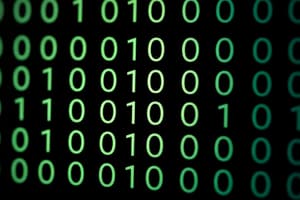Podcast
Questions and Answers
What is the base of the binary number system?
What is the base of the binary number system?
- 10
- 8
- 5
- 2 (correct)
Which number system is widely used for day-to-day arithmetic?
Which number system is widely used for day-to-day arithmetic?
- Binary Number System
- Hexadecimal Number System
- Octal Number System
- Decimal Number System (correct)
In the octal number system, which digits are used to represent numbers?
In the octal number system, which digits are used to represent numbers?
- 0 to 7 (correct)
- 0 to 5
- 0 to 8
- 1 to 9
What is the primary use of binary numbers in digital electronics?
What is the primary use of binary numbers in digital electronics?
Which number system is fundamental to computer science?
Which number system is fundamental to computer science?
What are the digits used in the hexadecimal number system?
What are the digits used in the hexadecimal number system?
Which number system includes all rational numbers and irrational numbers?
Which number system includes all rational numbers and irrational numbers?
Which number system includes real numbers and imaginary units like 'i'?
Which number system includes real numbers and imaginary units like 'i'?
Which type of numbers can be further divided into algebraic and transcendental numbers?
Which type of numbers can be further divided into algebraic and transcendental numbers?
What are hyper-real numbers and quaternions examples of?
What are hyper-real numbers and quaternions examples of?
Flashcards are hidden until you start studying
Study Notes
Number Systems in Mathematics
Number systems are mathematical frameworks used to represent numbers in various forms and are understood by humans and machines alike. These systems define a set of values to represent quantities and are used for counting, measuring, and performing arithmetic operations like addition, subtraction, and division. There are different types of number systems, each with distinct properties and applications.
Binary Number System
The binary number system, also known as the base-2 system, uses only two digits—0 and 1—to represent numbers. It is the most fundamental number system used in digital electronics and computer science. Binary numbers are often used to represent the states of a computer's electric switches, with 0 representing "off" and 1 representing "on" states.
Octal Number System
The octal number system, also known as the base-8 system, uses the digits 0 to 7 to represent numbers. It is less commonly used than the binary and decimal number systems but has applications in computer science and digital electronics.
Decimal Number System
The decimal number system, also known as the base-10 system, is the most widely used number system. It uses the digits 0 to 9 to represent numbers. The decimal system is used for day-to-day arithmetic and is the standard number system in many parts of the world.
Hexadecimal Number System
The hexadecimal number system, also known as the base-16 system, uses the digits 0 to 9 and the letters A to F to represent numbers. It is commonly used in computer science, specifically in programming, to represent the digital values of computer components and data storage.
Real Number System
The real number system includes all rational numbers (such as 1/2, 3/4, and √2) and irrational numbers (such as π, e, and √2). Real numbers can be further divided into algebraic and transcendental numbers.
Complex Number System
The complex number system includes real numbers and imaginary units, such as i, which are the square roots of negative numbers. Complex numbers are used in many areas of mathematics, including algebra, geometry, and calculus.
Beyond Real and Complex Numbers
There are even bigger sets of numbers used by mathematicians, such as hyper-real numbers and quaternions. These number systems have applications in advanced mathematics and physics.
Number systems are essential in mathematics and have practical applications in various fields, from computer science and digital electronics to physics and engineering. Understanding these systems allows us to represent and manipulate numbers in a precise and consistent manner, which is crucial for solving complex problems and developing new technologies.
Studying That Suits You
Use AI to generate personalized quizzes and flashcards to suit your learning preferences.




